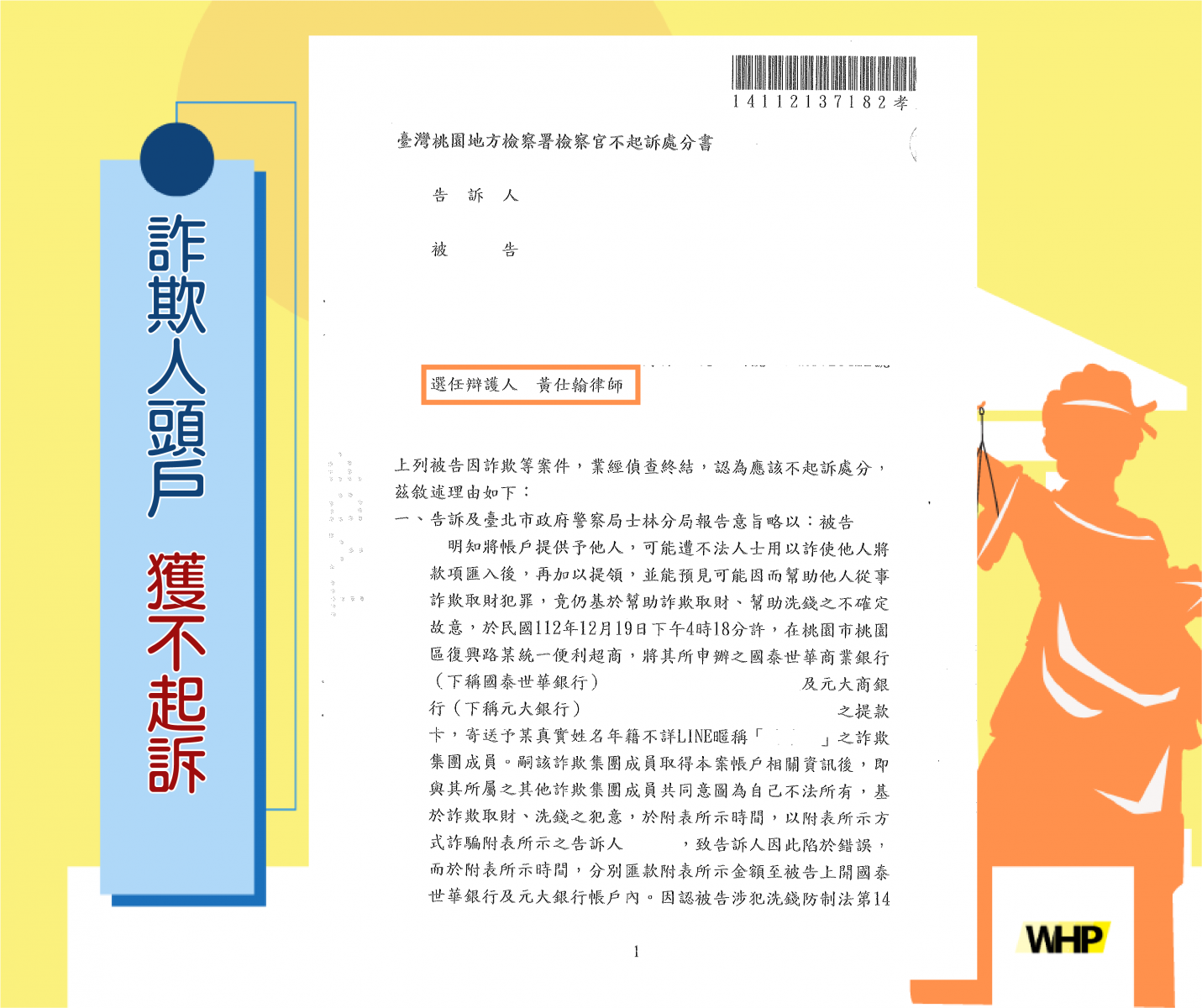首頁 >
| Successful acquittal of lawyer's dummy account defendant in fraud case

Relevant Legal Provisions
Criminal Law Article 284:Anyone who injures another person due to negligence shall be sentenced to no more than one year in prison, detention, or a fine not exceeding 100,000 NT dollars; if serious injury occurs, the sentence shall be no more than three years in prison, detention, or a fine not exceeding 300,000 NT dollars.
Criminal Law Article 287:Crimes under Article 277, Paragraph 1, Article 281, and Article 284 are subject to complaint-based prosecution. However, when a public servant commits a crime under Article 277, Paragraph 1 while performing their duties, this provision does not apply.
Facts and Reasons
The defendant (our client) experienced a decrease in income and, to supplement household expenses, found a domestic work opportunity on Facebook. The other party provided a company name and related employment contract. After verifying the company's existence, the defendant submitted their ATM card and related bank account information as requested. However, the defendant was unfortunately exploited in a fraud scheme. The plaintiff later filed a lawsuit after the defendant's funds were stolen by the fraudulent group.
Prosecutor's Disposition
The defendant in the above case, related to fraud and other offenses, has been cleared after the investigation concluded, and a decision of non-prosecution was made.
Upon review, the relevant conversation records clearly show that the defendant, in response to a domestic work advertisement, came into contact with a fraud group and was subsequently deceived. After being defrauded, the defendant reported the incident to the police. Therefore, it cannot be ruled out that the defendant is also a victim of fraud. Simply because the plaintiff transferred the stolen funds to a financial account does not provide sufficient grounds to infer that the defendant was involved in aiding the fraud or money laundering activities.
(Some details of the case have been adjusted or omitted to protect the parties' rights.)
Attorneys: Vincent Huang
-
04.23 2024
Can compensation still be claimed if a contract te...
-
04.16 2024
What is a guardianship declaration?
-
04.09 2024
Sexual Autonomy Violation | Tricked in a Sex Trade...
-
04.02 2024
Domestic Litigation | Spouse Secretly Installs Sur...
-
03.26 2024
Can Accusations Be Made Years After the Relationsh...
-
03.19 2024
Negligence of Supermarket! Joint Liability of Empl...
-
03.12 2024
Defective Renovation Work and the Contractor's Ref...
-
03.05 2024
Is it Wrong Just Because the Administrative Agency...
-
02.27 2024
Criminal Drugs | Selling Class 2 Drugs vs. Transfe...
-
02.20 2024
Civil Case | What to Do if Common Areas and Mechan...
-
02.06 2024
What to do if you encounter a loan scam?
-
01.30 2024
Paid the decoration deposit, but the construction ...
-
01.23 2024
Fraud | Can you be sued for fraud just for online ...
-
01.16 2024
Installing Own Surveillance Cameras, Does It Viola...
-
01.09 2024
Divorce | Can Divorce Occur After Many Years of Se...